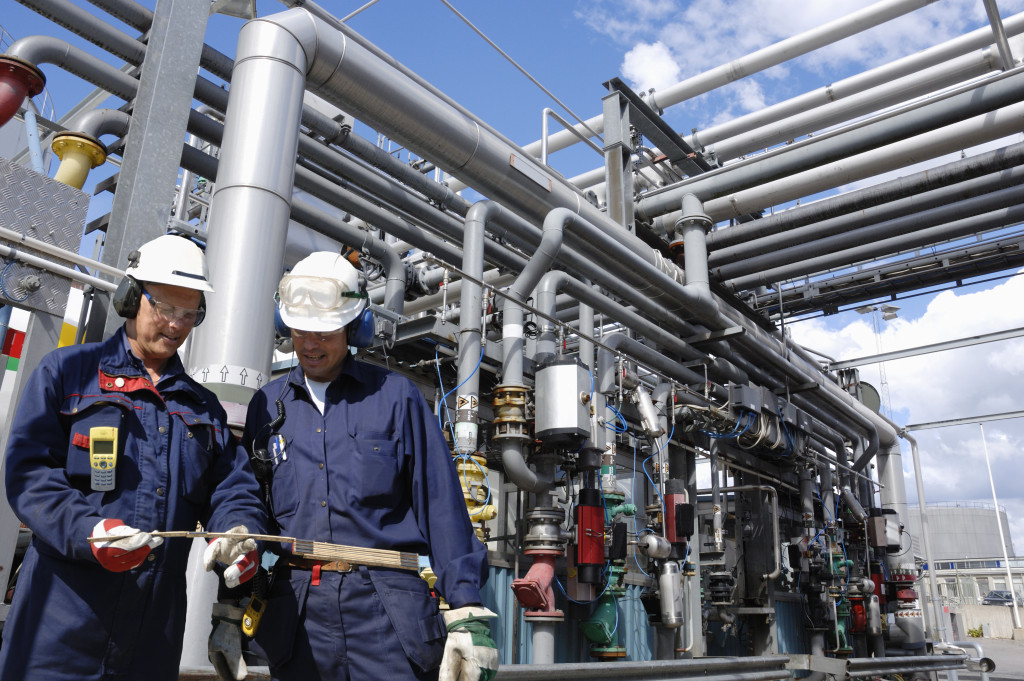- Identifying a unique selling proposition (USP) is the initial step in creating a strong brand presence in the industrial sector.
- Building a robust online presence is vital in today’s digital era to enhance brand visibility and reach.
- Investing in high-quality infrastructure can improve operational efficiency and enhance a company’s credibility.
- Ensuring employee safety and comfort creates a positive image and boosts company morale in the industrial sector.
In today’s fast-paced and highly competitive business world, creating a brand name for your company is essential, especially in the industrial sector. The industrial sector is a dynamic and ever-changing industry where innovation and excellence are highly valued. Therefore, if you want to make a name for your company in the industrial sector, it is essential to focus on building brand awareness and reputation. This blog post will discuss some essential steps that small and medium-sized businesses can take to create a strong brand and reputation in the industrial sector.
Identify Your Unique Selling Proposition (USP)
The first step to creating a strong brand in the industrial sector is to identify your USP. Your USP is what sets you apart from your competitors. It could be your innovative products, exceptional customer service, or high-quality standards. Once you have identified your USP, use it as the foundation for your branding strategy and ensure it is incorporated into the following:
Your Brand Logo and Visual Identity
Your brand logo and visual identity are key elements that represent your company’s persona and values in a visually impactful manner. Considering the industrial sector’s competitive nature, these elements must be distinctive and well-thought-out, reflecting your USP effectively. Be it your company logo, color palette, typography, or imagery, each aspect should resonate with your brand philosophy and offerings, ultimately strengthening your market position.
Your Company’s Mission Statement and Messaging
Your mission statement is a crucial component of your brand. It should encapsulate the essence of your USP and articulate your company’s goals and values. The mission statement and your brand messaging should be consistent, clear, and engaging. This is your opportunity to communicate with your audience on a more personal level, allowing them to understand what your company stands for.
Your Marketing Materials
Your marketing materials are the practical application of your brand identity and message. Whether it’s your website, brochures, product catalogs, or social media posts, each piece should reflect your unique selling proposition consistently. These materials are often the first point of contact potential customers have with your brand, so creating a lasting positive impression is crucial. Use compelling graphics, persuasive copy, and professional design to enhance your credibility and value proposition in the industrial sector.

Focus On Building Your Online Presence
In the digital era, having a robust online presence is indispensable for businesses, particularly in the industrial sector, where the competition is stiff.
It’s more than just having a company website; it involves leveraging various digital platforms to reach potential customers, engage with existing ones, and build a reputation in the industry. For instance, creating and regularly updating a company blog, being active on social media, and participating in online communities relevant to the industrial sector can significantly boost your brand’s visibility.
Furthermore, investing in search engine optimization (SEO) techniques can help your website rank higher on search engine results pages, making it easier for potential customers to find you.

Invest in Good Infrastructure
Investing in good infrastructure is paramount for companies in the industrial sector. Quality infrastructure not only improves operational efficiency but also enhances your company’s credibility in the marketplace. Here are some examples:
Industrial Equipment and Machinery
Having top-of-the-line industrial equipment and machinery is essential for companies in this sector. Outdated or malfunctioning equipment can lead to production delays, quality issues, and safety concerns. Investing in modern, high-performing equipment not only improves your company’s efficiency but also sends a message to potential customers that you value innovation and excellence.
Electrical Panels
Electrical panels are a crucial part of your company’s infrastructure. These are the central units where the power that runs your operations is distributed. An outdated or poorly maintained panel can lead to inefficiencies, breakdowns, or even safety hazards. Investing in high-quality industrial electrical panels and ensuring adequate maintenance can significantly improve your company’s operational efficiency and also contribute to your brand’s reputation for quality and reliability.
Infrastructure for Employee Safety and Comfort
In the industrial sector, employees are often required to work in physically demanding and hazardous conditions. As a responsible business owner, it is essential to invest in infrastructure that ensures the safety and comfort of your employees. This can include well-maintained facilities, proper protective gear, and ergonomic workstations. Taking care of your employees not only boosts morale but also creates a positive image of your company in the industrial sector.
Creating a brand in the industrial sector requires time, effort, and a comprehensive brand-building strategy. Identifying your USP, building a strong online presence, participating in industry events, focusing on customer satisfaction, and building and maintaining relationships are essential elements of a successful branding strategy. By implementing these steps, small and medium-sized businesses can create a strong brand presence in the industrial sector, increasing their competitiveness and ensuring long-term success.

